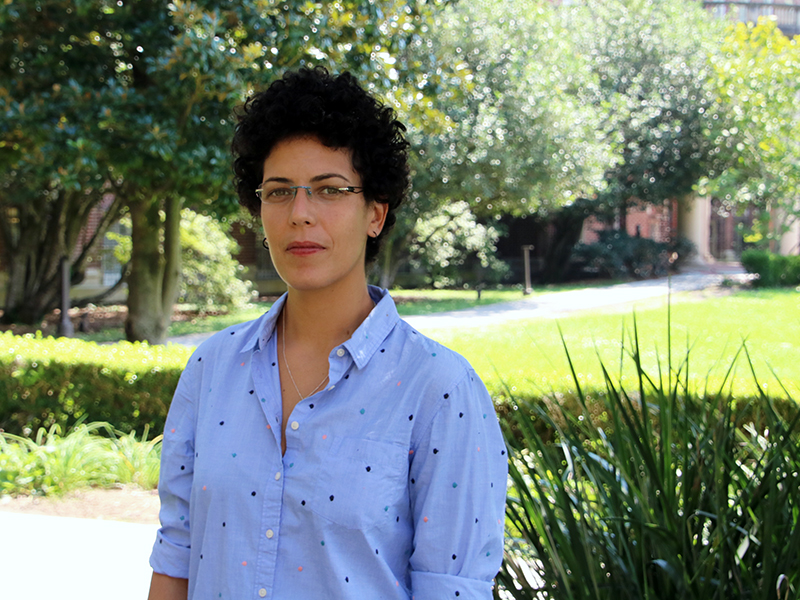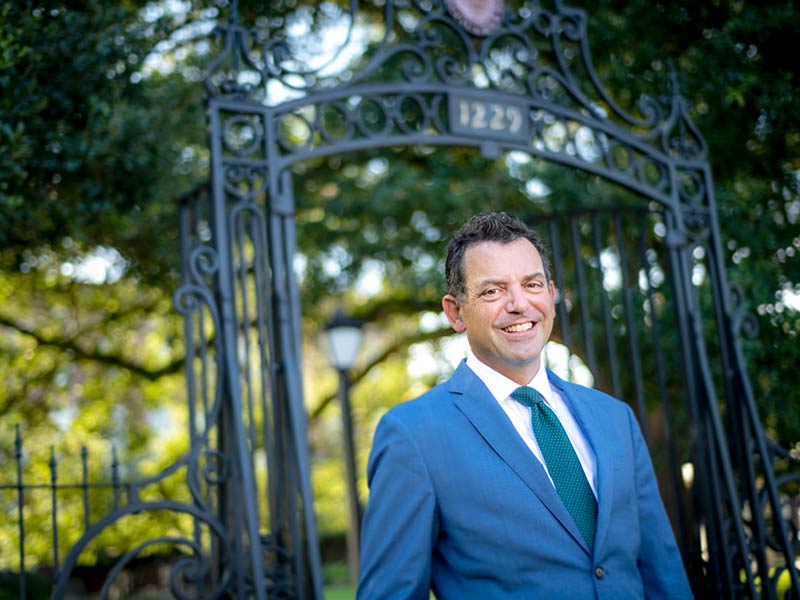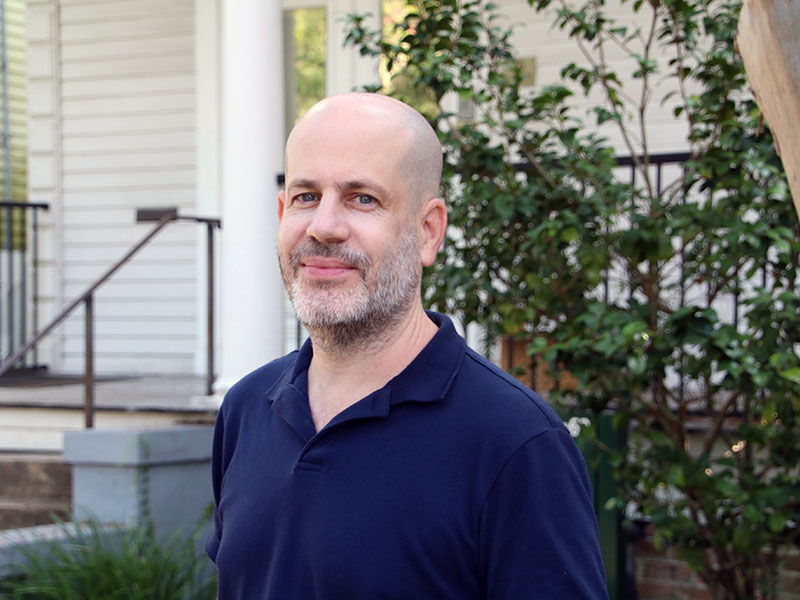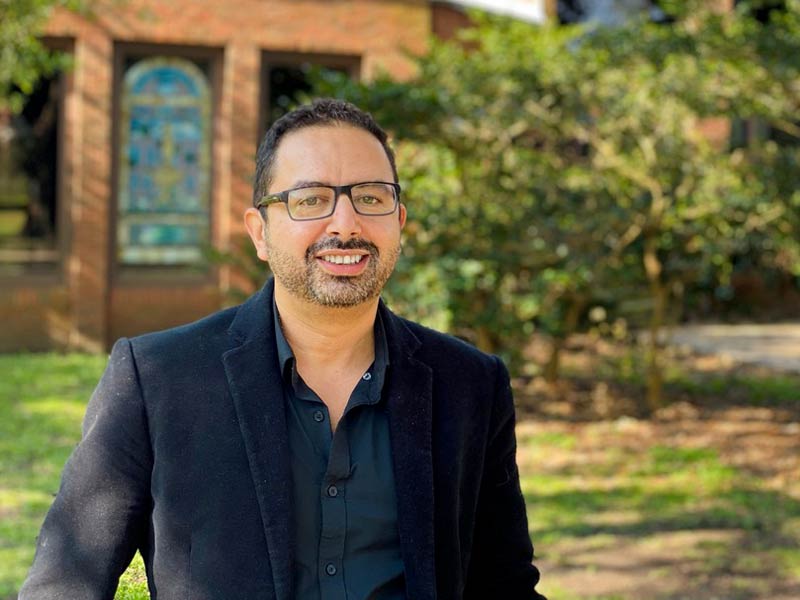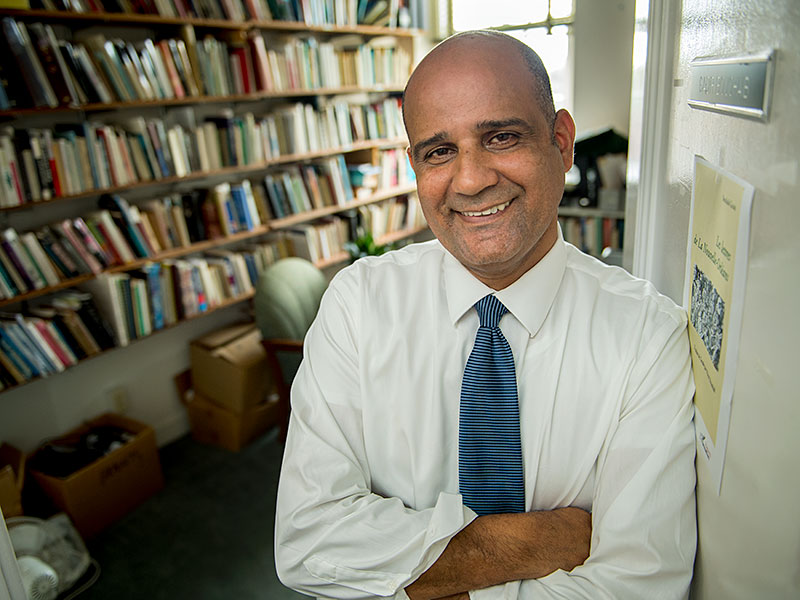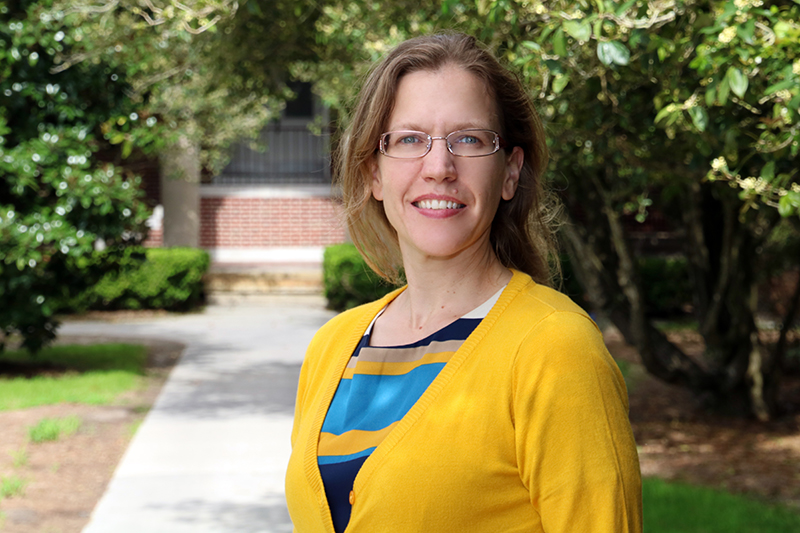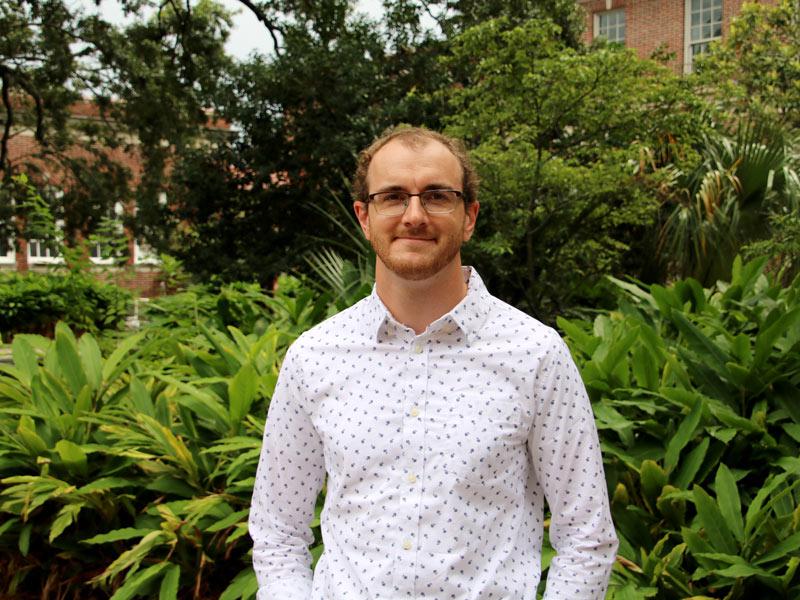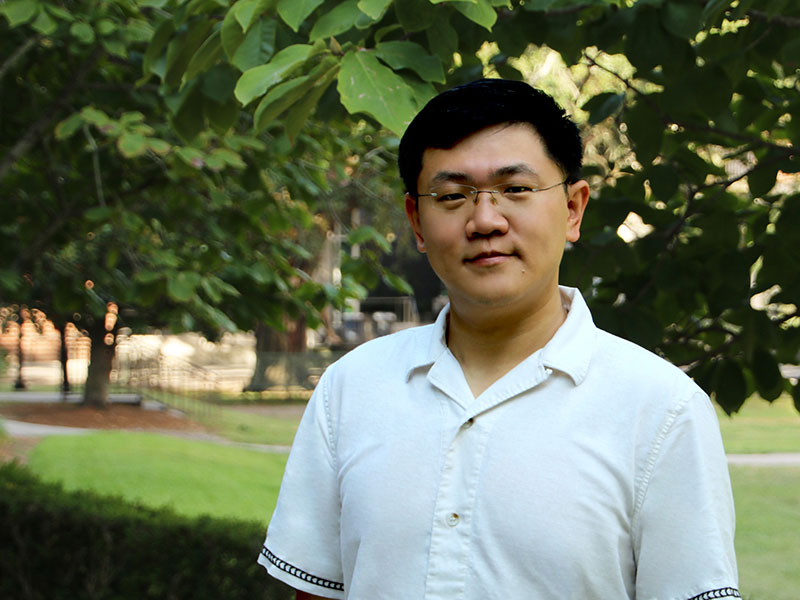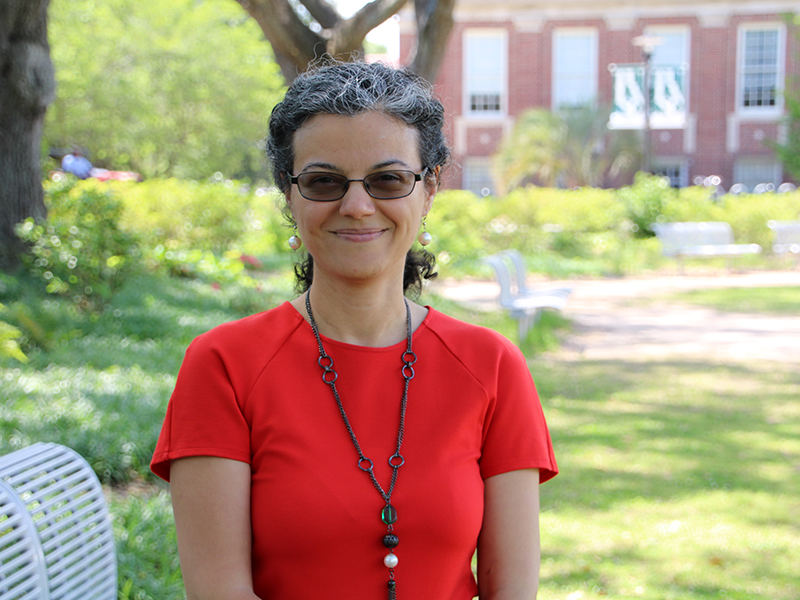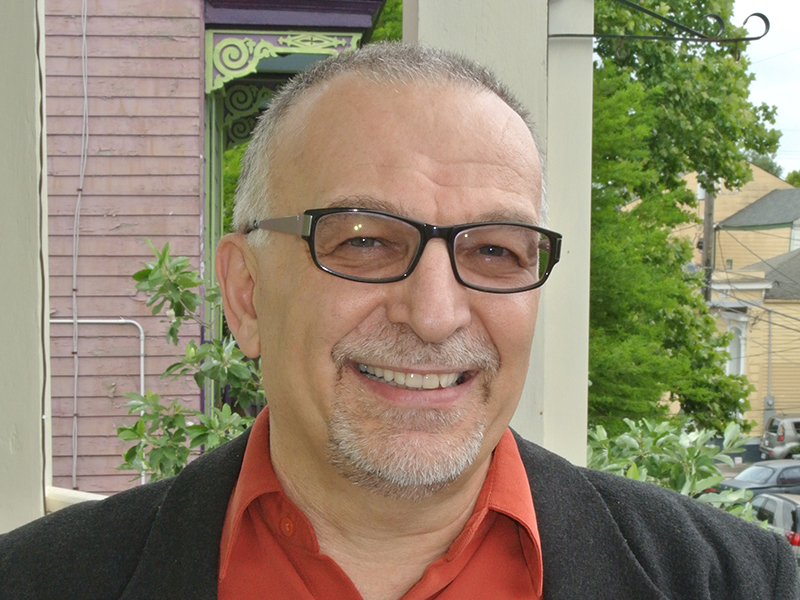Yasmina Aidi, Ph.D., is an Assistant Professor at the Spanish and Portuguese Department. She completed her Ph.D. at Princeton University, Masters at Florida Atlantic University and her undergraduate studies at the Complutense University of Madrid. Her research interests lie in the area of Moroccan-Spanish colonial and postcolonial periods. Focusing on the importance of countercultures and the circulation of Berber Cannabis in the configuration of cultural imaginaries, she explored exchanges between Spain and the Rif area of Morocco in times of colony, war, militarization or border construction. She is interested at offering a multilayered and alternative history of Hispano–Moroccan relations, based of underground encounters, cooperation, resistance, tolerance and difference. Her research stretches from the 19th century up until today, covering the recent audiovisual representations of North-African borders in relation to the birth of narco-trafficking and undocumented migration in the Mediterranean.
Khedidja Boudaba received a B.A in Translation/Interpretation from the University of Algiers in 1981, a M.A in Romance Languages from the University of New Orleans in 2004 and a Ph.D. in linguistics and Anthropology from Tulane University in 2010. A former journalist and freelance translator/Interpreter, she is currently a professor of Practice teaching language and content courses in Arabic and French at Tulane University. Her research interests include Language, Power, Gender and women’s representation in the Media.
Elio Brancaforte is an Associate Professor at Tulane University, specializing in 16th- and 17th-century European travel literature about the Middle East and the Caucasus, especially of the Safavid Empire. His scholarly interests include: translation, cultural exchange, theories of representation, the history of the book, German baroque drama, and the history of cartography. The relationship between word and image is an underlying theme in much of his research and informs his current book project on portrayals of Safavid Azerbaijan in early modern European travel accounts. His first book, Visions of Persia, Mapping the Travels of Adam Olearius (Harvard, 2003), examined how a German baroque scholar constructed an image of Iran for a mid-17th-century European public. He is currently a Visiting Researcher at the Faculty of Oriental Studies at the University of Oxford and is working as an ACLS Collaborative Fellow on a book about copied images in early modern travel accounts.
Brian T. Edwards is professor of English and dean of the School of Liberal Arts at Tulane. Prior to moving to Tulane in July 2018, he was the Crown Professor in Middle East Studies and professor of English and comparative literary studies at Northwestern University, where he was also the founding director of the Program in Middle East and North African Studies. He is the author of Morocco Bound: Disorienting America's Maghreb, from Casablanca to the Marrakech Express (Duke, 2005) and After the American Century: The Ends of U.S. Culture in the Middle East (Columbia, 2016), based on extensive field research in Morocco, Egypt, and Iran. He is also coeditor of Globalizing American Studies (Chicago, 2010) and editor of On the Ground: New Directions in Middle East and North African Studies (NU-Qatar, 2013). He is currently working on a project on global port cities, with the collaboration of a multinational group of scholars, curators, and artist-activists based in port cites on four continents, including Casablanca and Doha. He is also writing a book about Tangier in the 1990s, part-memoir, part-critical biography of Paul Bowles, Mohammed Mrabet, and Mohamed Choukri.
Professor Eran Eldar is an interdisciplinary researcher in the field of Israel studies. His primary research interest is the geographical, social, cultural, and political history of the State of Israel and the Middle East. He also deals with the military history of Israel and the connections between the military, the government and the society in Israel. His publications reflect a particular interest in the urban development of Israel, Israeli politics and communication in Israel. Professor Eldar also deals with the study of the Middle East, the relations between the countries of the Middle East in the 1960s and 1970s, the military confrontations between Israel and the Arab states in the context of the Israeli-Arab conflict and the military history of the region. Professor Eldar is the author of three academic books: Attrition, Army and Civilians on the Northeast Front, 1967-1970 (Bar-Ilan University Press, 2023, Won the Moldovan Prize for Military Literature and a special mention of excellence from the Yitzhak Sade Prize for Military Literature, was included in the list of the best books of the year by the newspaper "Haaretz"), The Road to '77, The Collapse of the Hegemony of the Labor Party, 1965-1977 (Am-Oved, 2018), By Its Own Efforts: The Urban Development of Tel Aviv in the Twilight of the British Mandate and the First Decades of the State of Israel (Resling, 2013). He is a co-author of the book: The History of Tel Aviv, vol. 3, A Rejuvenating City (Ramot, Tel Aviv University). Eldar received his Ph.D. in Jewish History from Tel Aviv University. Recently he published a chapter called: Between Holiness and Secularity: Jerusalem Versus Tel Aviv – image, relations and economy, in the Jerusalem Book 1948-1973, Yad Ben-Zvi, Jerusalem, 2023. He served as a visiting professor at many universities in Israel, Europe, Canada and the United States (Tel Aviv University, Paris 8 University, Calgary University, University of Maryland and more). He published many academic articles in English, Hebrew and French that were highly praised in academic journals.
Fayçal Falaky is an Associate Professor of French at Tulane University, where he specializes in eighteenth-century French literature, culture and politics, and is the current director of the MENA Program. He is the author of Social Contract, Masochist Contract: Aesthetics of Freedom and Submission in Rousseau (SUNY Press, 2014). He is also the author of a number of articles and encyclopedia entries that touch on Islam and its representations: “Iconologie et idolâtrie en Islam: caricatures et figures,” La Voix du regard (2007), “Radical Islam, Tolerance and the Enlightenment,” Studies in Eighteenth-Century Culture (2018), “Voyage pour la rédemption des captifs aux royaumes d'Alger et de Tunis (1721),” in Christian-Muslim Relations: A Bibliographical History, 13: 1700-1800 (Leiden: Brill, 2019), and “D’un déisme à l’autre : Le wahhabisme au temps des Lumières,” in Les Lumières, l'esclavage et l'idéologie coloniale, XVIIIe-XIXe siècles (forthcoming in 2020).
Bouchaib Gadir, PhD is a senior professor of practice of Arabic and serves as the director of the Arabic Language Program. In 2017, his book of poetry LES LETTRES DE LA NOUVELLE-ORLÉANS was published by L’Harmattan, Paris, France. Dr. Gadir served as an American Consultant on Education for the American Consul on Education (ACE) where he conducted onsite reviews on the Defense Language Institute (DLI) and for the National Cryptologic School (NCS). Dr. Gadir conducted a review of a proposal for New York University Abu Dhabi (NYUAD) titled "Leadership and Imagination in Performance: A Center for Incubation and Research.” He served as an Arabic Language Dialect coach to actors on the CBS series NCIS: New Orleans. In the Spring of 2019, he defended a second PhD, March 6, 2019 in Arabic Literature with a thesis titled “Response to Colonialism in Modern Arabic Literature.”
Brian Horowitz, Jewish Studies Department, holds the Sizeler Family Chair and is a professor of Israeli Studies. He is co-director of the Mandel-Palagye Summer Program in Middle East Peace and teaches Arab-Israeli Conflict, Zionism, and History of Israel. He has written five books. His most recently book is entitled, Vladimir Jabotinsky's Russian Years, 1900-1925 (Indiana University Press, 2020). He has edited Jabotinsky's famous autobiography, Story of My Life, and written widely on the early years of the Zionist movement.
Christina Kiel is Professor of Practice in the Political Science Department. She teaches international relations, including “Politics of the Arab-Israeli Conflict” and “Peace Studies and Conflict Management.” Her research interests include transnational advocacy and the role of non-state actors in diplomacy. She is the Co-Director of the Mandel-Palagye Summer Program in Middle East Peace which takes students to Jerusalem for an immersive study of the Israeli-Palestinian conflict.
Andrew Leber examines the ways that authoritarian regimes utilize public policies and information manipulation to deter domestic dissent, with a particular focus on the politics of the Middle East (or West Asia) and North Africa. His research has been informed by substantial fieldwork, primarily in Saudi Arabia but also including time in Kuwait and has appeared in peer-reviewed outlets such as Politics & Society, Middle East Law & Governance, the International Journal of Communication and the British Journal of Middle East Studies.
Xiaoyue Yasin Li is an Assistant Professor in the Department of History and the Middle East & North African (MENA) Studies. His scholarship centers on techno-infrastructure within its broader social milieu in Egypt, and explore the interplay of materiality, political economy, and everyday politics. His book manuscript in preparation, Taming an Iron Horse: Capital, Politics, and Rail Infrastructure in Egypt, weaves an infrastructure-centric perspective to revisit the modern Middle East and its entanglement with global histories of capitalism, empire and resistance. This project accentuates the multilayered politics in play at an empire’s frontier that oscillated between modernity and indigeneity, capitalization and decolonization, autocratic reality and democratic ethos.
Before joining Tulane, Li held academic positions at the University of Michigan and Colby College. His research appears in International Journal of Middle East Studies, Technology and Culture, and published by Brill Publishers. His Ph.D. dissertation won the Malcolm H. Kerr Dissertation Award in Social Sciences of the Middle East Studies Association (MESA) in 2022.
Adeline Masquelier is Professor in the Department of Anthropology. As a sociocultural anthropologist, she has conducted research in Niger, West Africa, on religion, gender, health, youth cultures, education, and environmental issues.
She is the author of three books, including Prayer Has Spoiled Everything: Possession, Power, and Identity in an Islamic Town of Niger (Duke University Press, 2001). Her second monograph Women and Islamic Revival in a West African Town (Indiana University Press, 2009) received the 2010 Herskovits Award for best scholarly book on Africa and the 2012 Aidoo-Snyder prize for best scholarly book about African women. Her latest book Fada: Boredom and Belonging in Niger (University of Chicago Press, 2019) was a finalist for the Best Book Prize awarded by the African Studies Association and received a special commendation for the Amaury Talbot Prize from the Royal Anthropological Institute.
She is the (co)editor of Dirt, Undress, and Difference: Critical Perspectives on the Body’s Surface (Indianan University Press, 2005), Muslim Youth and the 9/11 Generation (School for Advanced Research Press & University of New Mexico Press, 2016), Critical Terms for the Study of Africa (University of Chicago Press, 2018) and In the Meantime: Toward an Anthropology of the Possible (Berghahn, 2023). Her articles have appeared in American Anthropologist, American Ethnologist, Cultural Anthropology, Anthropological Quarterly, Public Culture, Cahiers d’Études Africaines, Africa, and the Journal of the Royal Anthropological Society. She is currently completing a book on the mass possession of schoolgirls in Niger.
Masquelier is a past President of the Society for the Anthropology of Religion, a section of the American Anthropological Association. At Tulane she previously served as Chair of the Department of Anthropology and Director of the Religious Studies Program. She is a past executive editor of the Journal of Religion in Africa. She is currently an editor of the International African Library at Cambridge University Press and serves on the Board of Directors of the African Studies Association. She also serves as co-editor of HAU: Journal of Ethnographic Theory.
Felicia McCarren, Professor of French at Tulane University and associated faculty in Cinema Studies, is a cultural historian and performance theorist. Felicia is the author of four books, including French Moves; The Cultural Politics of le hip hop (Oxford University Press, 2013), awarded the De la Torre Bueno Prize by the Society of Dance History Scholars, and the Outstanding Publication of the Year 2014 from the Congress on Research in Dance. Her new book, One Dead at the Paris Opera Ballet; La Source 1866-2014 (Oxford, 2020) explores science, sex and race in four historical performances of an Orientalist ballet by the Paris Opera’s first archivist. In 2016-17, Felicia was a Resident Fellow at the Paris Institute for Advanced Study and the Fondation Maison des Sciences de l’Homme and is a member of the Cultural History of Dance Seminar at the École des Hautes Études en Sciences Sociales, Paris where she is collaborating on the project Dis-Orienting Bodies with colleagues in the CRH (History Department) and the Université Paris-Descartes. Other MENA-related publications include articles on Maghrebian minority artists in France: “Somebody or Anybody? Hip hop Choreography and the Cultural Economy,” in Post-Migration and Postcoloniality in Contemporary French Culture. Eds. Kathryn Kleppinger and Laura Reeck. University of Liverpool Press, 2018; and “Minority Visibility and Hip Hop Choreography: France 2015,” in Contemporary Choreography; A Critical Reader. Eds. Joanne Butterworth and Liesbeth Wildchut. Routledge, 2017. Felicia received grants from the Lurcy Foundation and an NEH Summer Stipend to support ongoing research on the Moroccan south, and has published “Téléphone arabe: From Child’s Play to Terrorism; The Poetics and Politics of Post-colonial Telecommunications,” in Journal of Postcolonial Writing 44 no.3,2008; and “52 days to Timbuktu (62 days to Rabat),” in Critical Interventions: Journal of African Art History and Visual Culture, special issue on "Africanity and North African Visual Culture" Number 5 (Winter 2009-10).
Roberto Nicosia, Professor of Practice of Italian at Tulane, has a double Ph.D. in Ancient History from University of Rome La Sapienza and Italian Studies from Rutgers University of New Jersey. Although he is specialized in the reception of classical literature (Greek and Latin) in Humanism and Renaissance Italy together with the phenomenon of Greek scholars’ migration to the West before and after the Fall of Constantinople, his interests include contemporary migrants’ literature in Italy, as well as the Northern-African migration repercussion on the political and cultural landscape (music, fashion) of Italy. Roberto Nicosia is the author of articles on XVI century Italian Short Stories and Pietro Bembo cultural relations with Costantinos Lascaris, as well as the editor of the volume The Italian Short Story trough the Century, Cambridge Scholars Publishing (2018). He is currently working on a volume on Pietro Bembo and his Greek Oratio “In favor of the Greek letters.”
Ari Ofengenden heads the Hebrew program at Tulane University. His Ph.D. is in Comparative Literature from Haifa University. He did his post-doctoral work in Tübingen University, Germany as well as in Monash, Australia. He is the author of Liberalization and Culture in Contemporary Israel (Rowman and Littlefield, 2018) and Introduction to the Poetry of Abraham Shlonsky, (De Gruyter, 2014).
Esra Özcan is a Communication Studies scholar at Tulane University, Department of Communication in New Orleans. She received her Ph.D. in Communication Science from Jacobs University Bremen in Germany. Her research focuses on the representations of gender in news media, feminist and anti-feminist women’s movements in Muslim countries, and postcolonial feminism. She is interested in right-wing women’s movements and women’s role in carrying authoritarian men to power. She is the author of the book Mainstreaming the Headscarf: Islamist Politics and Women in the Turkish Media (I.B. Tauris, November 2019).
Edwige Tamalet Talbayev, Associate Professor in the Department of French and Italian, is the Founding Director of MENA Studies at Tulane (2019-2024). A scholar of Maghrebi literature and Mediterranean studies, she is the author of The Transcontinental Maghreb: Francophone Literature across the Mediterranean (2017) and the co-editor of The Mediterranean Maghreb: Literature and Plurilingualism (2012) and Critically Mediterranean: Temporalities, Aesthetics, and Deployments of a Sea in Crisis (2018). She is the Editor of the Maghrebi literature journal Expressions maghrébines. At Tulane, she has developed MENA-related courses such as “Women Writers of the Arab World,” “Writing Algeria: Trauma, Melancholia, Fiction,” “Maghrebi Literature,” and “Francophone Literature of the Maghreb.” Recent MENA-related publications include “Sound Capture and Transmedial Resonance: Moncef Ghachem’s Lyric” (Francophone Postcolonial Studies, forthcoming); “Mediterranean Francophone Writing” (Cambridge UP, forthcoming); “Accidental Form, Mediterranean Transpositions, and NewFrancophonies in Malika Mokeddem’s La Désirante” (Liverpool UP, forthcoming); “Abdelkebir Khatibi’s Mediterranean idiom” (Liverpool UP, 2020); “Translation and Affect in Rachid Boudjedra’s La Prise de Gibraltar” (Contemporary French and Francophone Studies 22.3, 2018); “Whiting out Algeria: On the Limits of Assia Djebar’sLe Blanc de l’Algérie as Post-Traumatic Liturgy” (CounterText 4.2, 2018); “‘L’origine comme un secret’. Plein Été de Colette Fellous (Autoportrait en absence)” (Œuvres & Critiques 43.1, 2018) ; “Méditerranéiser les études francophones” (Revue des Sciences Humaines 330, 2018) ; “Chiasmus and Après-coup: Andalusia as Trauma in Rachid Boudjedra’s La Prise de Gibraltar” (Journal of North African Studies 23.1-2, 2018).
Ferruh Yilmaz is Associate Professor in the Communication Department specializing in populist and far right communication strategies. His research interests include rhetorical nature of human communication, the centrality of immigration, culture and Islam to far right populist rhetoric and liberal and mainstream responses. His latest book, “How the Workers Became Muslim: Immigration, Culture, and Hegemonic Transformation in Europe” (2016) examines the far right’s populist strategies in Europe that enabled them to successfully turn immigration from a labor issue into a cultural threat, and made immigration and cultural values the central issues for the mainstream parties appeal to the voters. As a result, social/political identities (e.g. social/political divisions) are now re-envisioned in ethnic and cultural terms. Before becoming an academic, he worked as a journalist for a number of news organizations in Britain, Denmark and Turkey including the BBC World Service and Danish Broadcasting Corporation (DR) and Cumhuriyet (Turkish daily newspaper).


